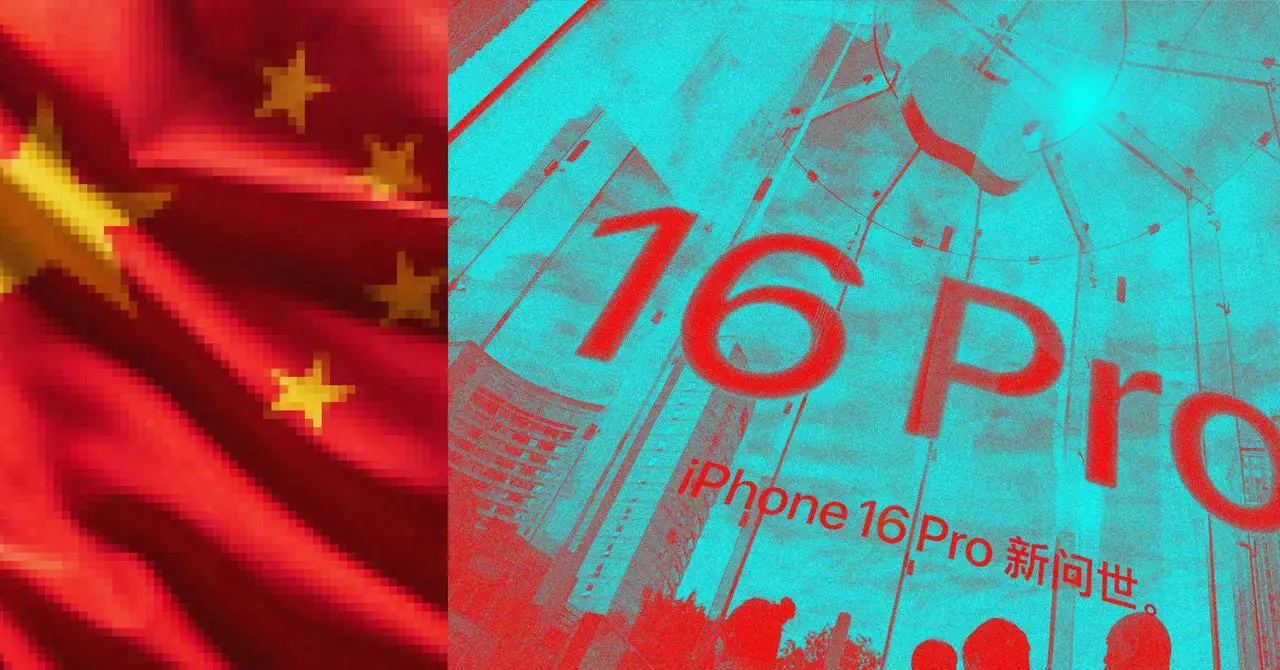The dynamics of technology and governance have never been more intricate, especially in the context of major corporations like Apple operating within vastly different political climates. As Apple navigates the complex waters of China’s regulatory framework, the challenges it faces extend beyond mere compliance—they touch on the essence of corporate ethics, democracy, and technological freedom. As Western tech companies attempt to engage with the lucrative but fraught Chinese market, the expectations for capitulation to state regulations continue to intensify, raising critical questions about autonomy and integrity.
China’s regulatory landscape imposes stringent requirements on technology companies, particularly with regard to artificial intelligence (AI) applications. Algorithms that determine information dissemination online must now be registered with government authorities, a process that brings transparency and oversight but also raises concerns about censorship and compliance. Tan, an industry analyst, emphasizes that tech firms might be hesitant to provide extensive details about their coding, fearing that this could lead to potential misuse or exploitation of their proprietary technologies.
The crux of the matter lies in China’s ability to enforce such regulations without facing substantial repercussions from the tech companies that often enjoy dominant positions in the global marketplace. This regulatory might is exacerbated by China’s rapid advancements in various technological sectors, where it has transitioned from a following role to a position of leadership. This shift not only alters the competitive landscape but also amplifies the risks for Western companies, which must decide whether the potential rewards outweigh the compromises that come with operating under these regulations.
From a Western perspective, the regulations governing generative AI in China can appear paradoxical. On one hand, the measures—including the requirement that “deep synthesis” content adheres to the “correct political direction” and does not disrupt economic and social order—can be seen as a necessary step in ensuring state security and social stability. On the other hand, these mandates raise alarms regarding freedom of speech and the potential for widespread censorship.
For instance, in a hypothetical scenario, a generative AI tool like Siri in China would be unable to reference politically sensitive topics such as the Dalai Lama or Taiwan’s status, effectively rendering it a tool for state-sanctioned narratives. In stark contrast to the more lenient governance of Western large language models (LLMs), which can often engage with diverse perspectives including the contentious subject of Taiwan, Chinese AI may fundamentally restrict discussions and information dissemination simply to comply with state preferences.
Given the scale and intensity of China’s regulation, it’s surprising that many Chinese tech companies appear to adapt and thrive under these constraints. The rapid increase in the number of approved LLMs from 14 to 188 in less than a year, as reported by the South China Morning Post, is indicative of this adaptability. Yet, for a U.S. corporation like Apple, the stakes are infinitely higher. The integration of a proprietary version of generative AI for Apple Intelligence threatens to entrench the company further within the confines of the Chinese regulatory system.
While Apple does have a history of complying with local policies, including censoring its App Store, the introduction of generative AI at the core of its devices may expose the company to greater scrutiny. With every compliance measure, the optics of technological capitulation grow more pronounced, casting Apple as a collaborator in the Chinese Communist Party’s (CCP) agenda. This raises ethical implications—does compliance equate to complicity?
As the balance of power shifts in global technology, companies like Apple will have to tread carefully. While the Chinese market offers enormous potential for profit, the cost of compliance may involve sacrificing fundamental values such as free expression and equality. With the pressure mounting to align closely with state policies, Western companies stand at a crossroads: either risk losing access to a significant market or engage in practices that could undermine their core principles.
Ultimately, navigating these treacherous waters requires not only strategic foresight but also a commitment to ethical stewardship in global operations. The choices made in the present will define the relationship between technology and state power going forward, with ramifications that could resonate far beyond the realms of commerce.

